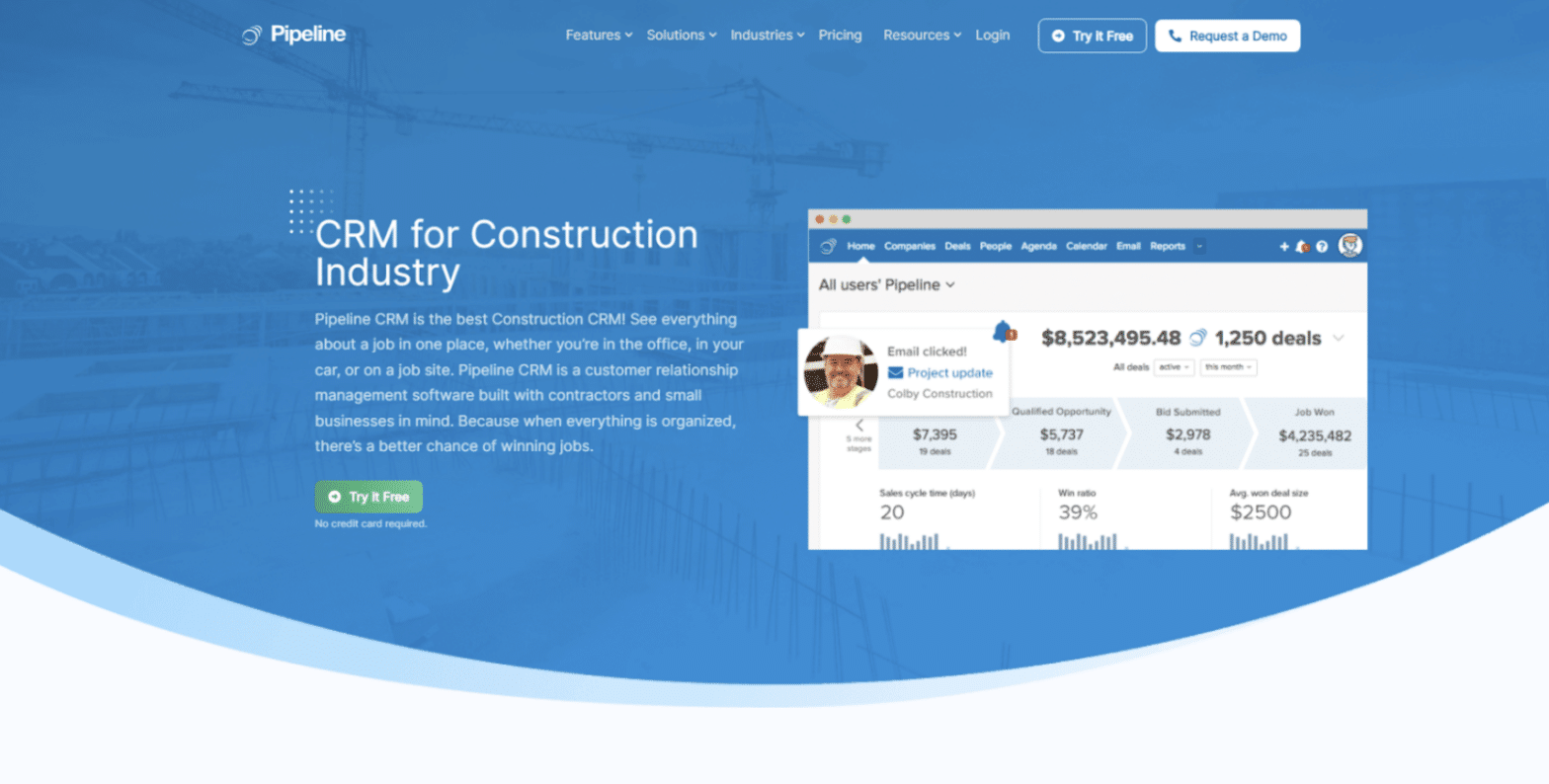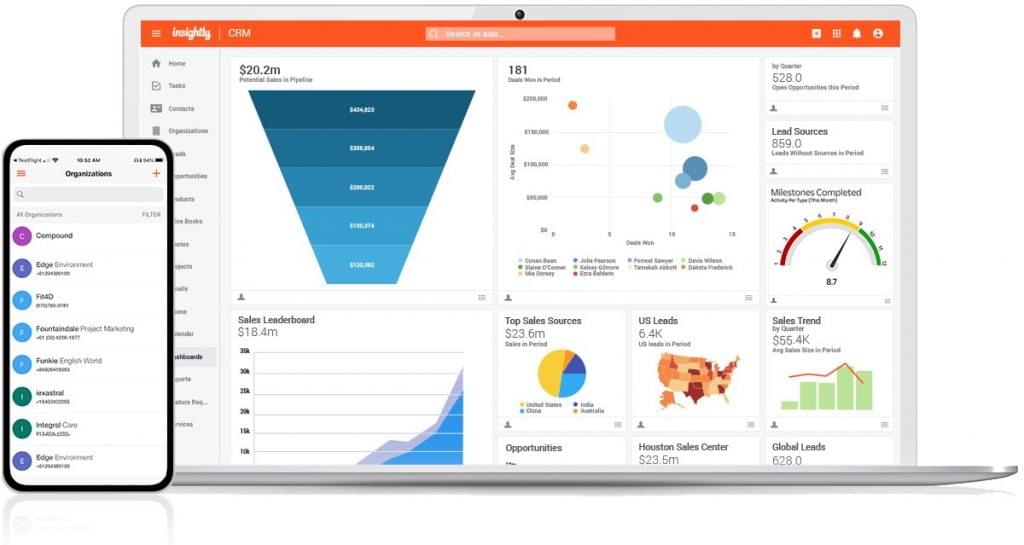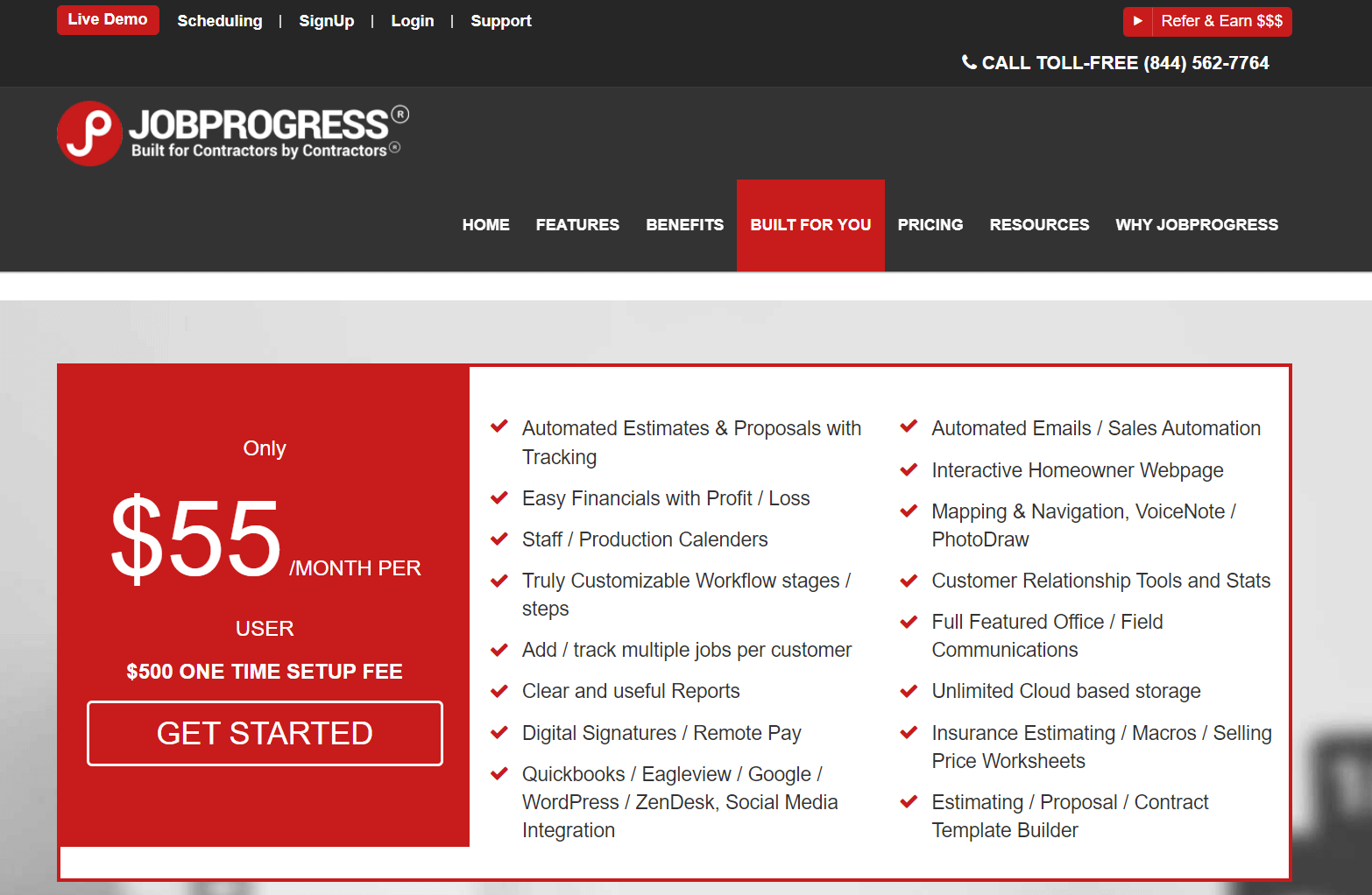Best CRM for independent contractors is a crucial tool for freelancers and solopreneurs seeking to manage their businesses effectively. The ability to organize clients, projects, and finances efficiently is essential for success in the competitive world of independent work. CRM systems offer a centralized platform to streamline operations, improve client communication, and track progress, ultimately boosting productivity and growth.
This article explores the essential features of CRM for independent contractors, examines top platforms tailored for freelancers, and provides tips for selecting and maximizing the benefits of these valuable tools.
Understanding the Needs of Independent Contractors

Independent contractors face unique challenges in managing their businesses, often juggling multiple clients, projects, and tasks while navigating a complex administrative landscape. A CRM system can be a valuable tool for independent contractors, helping them streamline operations, enhance client relationships, and ultimately, grow their businesses.
Essential Features for Independent Contractors
CRM systems can be incredibly beneficial for independent contractors, providing a centralized platform for managing client interactions, projects, and finances. The following features are particularly important for this segment:
- Contact Management: Independent contractors often work with a diverse range of clients, making it crucial to maintain accurate and up-to-date contact information. A robust CRM system enables easy storage, organization, and retrieval of client details, including names, phone numbers, email addresses, and communication history.
- Project Management: Managing multiple projects simultaneously can be overwhelming. A CRM system with project management capabilities allows contractors to track project timelines, milestones, and progress, ensuring timely completion and efficient resource allocation.
- Task Management: Independent contractors often handle a variety of tasks, from invoicing and scheduling to client communication and follow-ups. CRM systems offer task management tools that help prioritize, assign, and track tasks, improving productivity and reducing the risk of missed deadlines.
- Financial Management: Keeping track of invoices, payments, and expenses is essential for independent contractors. Some CRM systems integrate with accounting software, providing a comprehensive view of financial performance and streamlining billing processes.
- Reporting and Analytics: Understanding key performance indicators (KPIs) is crucial for business growth. CRM systems provide reporting and analytics tools that offer insights into client interactions, project progress, and financial performance, allowing contractors to identify areas for improvement and make data-driven decisions.
Top CRM Features for Independent Contractors
Choosing the right CRM for your independent contracting business is crucial for success. A good CRM can help you manage your clients, projects, and finances efficiently, allowing you to focus on what you do best – delivering exceptional services. This section will delve into the essential features of a CRM that can significantly benefit independent contractors.
Contact Management
Contact management is the backbone of any CRM, and for independent contractors, it’s even more critical. A robust contact management system allows you to store, organize, and manage all your client information in one central location.
- Centralized Client Database: Store all your client details, including contact information, project history, communication logs, and payment information, in a single, easily accessible database. This eliminates the need for scattered spreadsheets or notebooks, making it simple to retrieve and update information.
- Personalized Client Profiles: Create detailed client profiles that go beyond basic contact information. Include relevant details like their industry, project requirements, communication preferences, and past interactions. This allows you to tailor your communication and services to each client’s unique needs.
- Automated Communication: Send personalized emails, follow-up reminders, and automated messages to stay connected with your clients. This helps you maintain relationships, nurture leads, and keep projects on track.
Project Management
Managing projects efficiently is vital for independent contractors. A CRM with project management features helps you stay organized, track progress, and ensure timely delivery.
- Project Task Management: Break down large projects into smaller, manageable tasks, assign deadlines, and track progress. This helps you stay on top of deadlines, allocate your time effectively, and avoid missed deliverables.
- Collaboration Tools: Share project files, documents, and updates with clients and team members. This ensures everyone is on the same page and fosters seamless communication.
- Time Tracking: Accurately track the time spent on each project to generate accurate invoices and monitor your productivity. This feature is particularly beneficial for contractors who bill by the hour.
Invoicing and Payment Processing
Streamlining your invoicing and payment processes is crucial for getting paid on time. A CRM with integrated invoicing and payment features simplifies these tasks and improves your cash flow.
- Automated Invoice Generation: Create professional invoices with a few clicks, including details like project name, description, time spent, and payment terms. This saves you time and eliminates the need for manual invoicing.
- Online Payment Integration: Accept payments directly through your CRM, eliminating the hassle of manual bank transfers. This provides your clients with convenient payment options and helps you get paid faster.
- Payment Tracking: Monitor the status of invoices and payments, ensuring you’re aware of outstanding balances and overdue payments. This helps you maintain healthy cash flow and avoid late payments.
Integration with Other Business Tools
Integrating your CRM with other business tools can significantly enhance your operational efficiency and streamline your workflow.
- Accounting Software: Integrating your CRM with accounting software, like QuickBooks or Xero, allows you to automatically sync your invoices, payments, and expenses. This eliminates double entry and ensures accurate financial records.
- Email Marketing Tools: Integrating with email marketing tools like Mailchimp or Constant Contact allows you to create targeted email campaigns and nurture leads. This helps you reach your ideal clients and generate new business opportunities.
- Project Management Tools: Integrating with project management tools like Asana or Trello allows you to manage projects, track progress, and collaborate with clients and team members seamlessly.
CRM Options for Independent Contractors

Choosing the right CRM for your independent contractor business is crucial for managing your clients, projects, and finances effectively. It can help you streamline your workflow, improve communication, and ultimately grow your business.
Popular CRM Platforms for Independent Contractors
This section will compare and contrast some popular CRM platforms specifically designed for freelancers and independent contractors, focusing on their key features, pricing, pros, and cons. The table below provides a concise overview:
| Platform Name | Key Features | Pricing | Pros | Cons |
|---|---|---|---|---|
| Freshworks CRM |
|
|
|
|
| Zoho CRM |
|
|
|
|
| Pipedrive |
|
|
|
|
| HubSpot CRM |
|
|
|
|
Suitability for Different Types of Independent Contractors
The best CRM for you will depend on your specific needs and budget.
* Freshworks CRM: Ideal for independent contractors who are just starting out and need a user-friendly CRM with affordable pricing options.
* Zoho CRM: Suitable for contractors with more complex needs, such as those who require advanced features like marketing automation and customer support.
* Pipedrive: A good choice for contractors who focus on sales and need a CRM that helps them manage their sales pipeline effectively.
* HubSpot CRM: A powerful option for contractors who need a comprehensive CRM solution with strong marketing automation capabilities, but it can be expensive for smaller businesses.
Tips for Choosing the Right CRM
Choosing the right CRM is crucial for independent contractors to streamline their operations and improve client relationships. You need to carefully consider several factors to ensure the CRM you choose aligns with your specific needs and goals.
Ease of Use
The chosen CRM should be intuitive and easy to learn, regardless of your technical expertise. A user-friendly interface will allow you to quickly adapt and start using the system without needing extensive training. Look for CRM systems with a clear layout, helpful tooltips, and comprehensive documentation.
Scalability
As your business grows, your CRM should be able to scale with your needs. Choose a system that can handle increasing amounts of data, users, and features without compromising performance. Cloud-based CRMs are generally more scalable than on-premise solutions, allowing you to easily add features and users as your business expands.
Mobile Accessibility
Independent contractors often work on the go, so having a mobile-friendly CRM is essential. The CRM should be accessible from your smartphone or tablet, allowing you to manage your contacts, tasks, and projects anytime, anywhere. Look for a CRM with a responsive design that adapts to different screen sizes.
Customer Support
You’ll likely need assistance with setting up and using your CRM, especially if you’re new to the platform. Choose a CRM provider that offers excellent customer support, such as live chat, email support, and comprehensive documentation. Look for a provider with a proven track record of responsiveness and helpfulness.
Checklist of Questions to Ask Potential CRM Providers
Before committing to a CRM, it’s essential to ask potential providers a series of questions to ensure they meet your specific needs.
- What are the pricing plans and what features are included in each plan?
- What are the system’s integration capabilities with other tools you use, such as email marketing platforms, accounting software, and project management tools?
- What is the provider’s reputation for customer support and how responsive are they to inquiries?
- Does the provider offer any training resources or onboarding support to help you get started with the CRM?
- What is the provider’s data security and privacy policy?
Implementing a CRM System Effectively
Implementing a CRM system requires a structured approach to ensure success.
- Define your goals and objectives: Clearly define what you want to achieve with the CRM, such as improving client communication, streamlining operations, or automating tasks.
- Choose the right CRM: Carefully evaluate different CRM options based on your needs, budget, and business goals.
- Train your team: Provide comprehensive training to your team on how to use the CRM effectively.
- Start with a pilot project: Implement the CRM for a specific project or client group to test its effectiveness before rolling it out to the entire organization.
- Gather feedback and make adjustments: Regularly gather feedback from your team and clients to identify areas for improvement and adjust the CRM accordingly.
Maximizing CRM Benefits
A CRM isn’t just a tool for storing client information; it’s a powerful platform for streamlining operations and boosting your freelance business. By effectively leveraging its functionalities, independent contractors can enhance client communication, optimize time management, and automate repetitive tasks, ultimately leading to greater efficiency and profitability.
Improving Client Communication
Effective communication is the cornerstone of any successful freelance business. A CRM can significantly improve this aspect by centralizing all client interactions in one place. This allows you to:
- Track communication history: Access past emails, phone calls, and notes about each client, ensuring consistent communication and a personalized approach.
- Set reminders and follow-ups: Schedule automated reminders for important tasks, such as birthdays, project deadlines, or follow-up calls, ensuring you stay on top of client needs.
- Share documents and files securely: Store and share contracts, invoices, and other relevant documents directly within the CRM, eliminating the need for multiple platforms and ensuring secure access.
Tracking Progress and Managing Time Effectively
CRM systems provide robust tools for tracking project progress and managing time effectively, helping independent contractors stay organized and deliver projects on time and within budget.
- Project management features: Create tasks, set deadlines, and assign responsibilities, ensuring clear project organization and progress tracking.
- Time tracking tools: Accurately log time spent on specific tasks and projects, allowing for accurate invoicing and insightful analysis of your work habits.
- Reporting and analytics: Generate reports on project progress, client engagement, and time utilization, providing valuable insights for optimizing your workflow and identifying areas for improvement.
Automating Tasks and Workflows
By automating repetitive tasks, you can free up valuable time to focus on higher-value activities. A CRM can automate various aspects of your freelance business, including:
- Email marketing campaigns: Create and schedule automated email campaigns to nurture leads, promote your services, and keep clients engaged.
- Lead qualification and follow-up: Automatically qualify leads based on predefined criteria and trigger automated follow-up actions, ensuring efficient lead management.
- Invoice generation and payment reminders: Set up automated invoice generation and send timely payment reminders, streamlining the billing process and reducing late payments.
Real-World Examples of CRM Success, Best crm for independent contractors
Many independent contractors have successfully used CRM to grow their businesses. For instance, a freelance graphic designer used a CRM to manage client projects, track deadlines, and send automated email updates, resulting in increased client satisfaction and improved project delivery. Another freelance writer used a CRM to automate lead generation, schedule follow-up emails, and manage client communication, leading to a significant increase in client acquisition and project wins.
Wrap-Up

Choosing the right CRM can significantly impact an independent contractor’s success. By understanding the needs of independent contractors, exploring essential CRM features, and considering factors like ease of use and scalability, freelancers can select a platform that empowers them to manage their businesses efficiently and achieve their professional goals. With the right CRM system in place, independent contractors can focus on delivering exceptional work, building strong client relationships, and growing their businesses with confidence.
Key Questions Answered: Best Crm For Independent Contractors
What is a CRM and how does it benefit independent contractors?
CRM stands for Customer Relationship Management. It’s a software system that helps businesses manage interactions with current and potential clients. For independent contractors, CRM systems offer a centralized platform to organize contacts, track projects, manage invoices, and streamline communication, leading to improved efficiency and client satisfaction.
Is a CRM necessary for all independent contractors?
While not essential for every freelancer, a CRM can be highly beneficial for those managing a growing client base, complex projects, or seeking to improve their overall business organization. It becomes increasingly valuable as the number of clients and projects increases.
What are some popular CRM options specifically designed for freelancers?
Popular CRM options for freelancers include platforms like Freshworks, Zoho CRM, and HubSpot CRM. These platforms offer features tailored for independent contractors, such as project management, invoicing, and client communication tools.